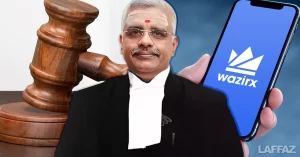In North Carolina, driving with a revoked license is a serious offense that can potentially lead to jail time. If an individual is caught operating a vehicle while their license has been revoked due to factors such as DUI/DWI convictions, accumulating excessive points on their driving record, or other serious violations, they could face legal consequences.
The severity of the penalties depends on various factors including an individual’s prior driving history, the reason for the license revocation, and any additional offenses committed during the incident. While not everyone caught driving with a revoked license will automatically go to jail, the state enforces strict penalties to deter such behavior and prioritize road safety.
If an individual is caught driving with a revoked license in NC, the consequences typically include fines, extended license suspension, and even the possibility of imprisonment.
To avoid these repercussions, individuals should adhere to the terms of their license suspension, complete any required courses or actions mandated by the court, and refrain from driving until their driving privileges are fully reinstated.
Understanding Revoked Licenses in North Carolina
A revoked license in North Carolina signifies a significant and official withdrawal of an individual’s driving privileges by the state’s Department of Motor Vehicles. License revocation can result from various factors, including multiple instances of driving under the influence (DUI) convictions, accumulating excessive points on the driving record, or failure to maintain proper auto insurance.
Unlike a suspended license, which is temporary and typically has specific conditions for reinstatement, a revoked license entails a more extended period of driving disqualification. Reinstating a revoked license often involves meeting stringent requirements.
It’s crucial for residents of North Carolina to comprehend the implications of a revoked license, as driving with such a status can lead to severe legal consequences including fines, extended revocation periods, and potentially even imprisonment for repeat offenders or those caught engaging in high-risk behavior on the road.
Penalties for Driving with a Revoked License
Driving with a revoked license carries significant penalties that vary based on jurisdiction and the reason for the license revocation. Typically, individuals caught driving under such circumstances face substantial fines, extended periods of license revocation, and in some cases, even imprisonment.
Repeat offenders or those with prior serious traffic violations might experience harsher consequences, including longer revocation periods and heightened fines.
From exacerbating legal troubles to potentially leading to more severe charges or complicating efforts to reinstate driving privileges in the future are examples of repercussions if someone drives with a revoked license.
To avoid these, it’s crucial for individuals to adhere to the terms of their license revocation, complete any mandated requirements, and refrain from driving until their driving privileges are lawfully restored.
Factors That Determine Jail Time
The determination of jail time hinges on a multitude of interplaying factors, with legal systems considering the nature and severity of the offense, an individual’s criminal history, and the specific circumstances surrounding the case. The gravity of the crime and its potential impact on society often play a pivotal role; more serious offenses tend to result in longer sentences.
Additionally, a person’s criminal history, including past convictions and the presence of repeat offenses, can amplify the likelihood of receiving jail time. Courts also consider mitigating or aggravating circumstances, such as whether the individual acted with premeditation or in self-defense.
In some cases, alternative sentencing options like probation or community service might be explored. Overall, the determination of jail time is a complex process that aims to balance justice with individual circumstances and societal safety.
Alternatives to Jail for Revoked License Offenses
As an alternative to jail sentences for offenses related to driving with a revoked license, jurisdictions often explore various options aimed at rehabilitation and community engagement.
Probation can be a viable choice, allowing individuals to remain in the community under certain conditions, such as regular check-ins with a probation officer and adherence to court-mandated requirements.
Some offenders might also be offered the opportunity to participate in community service programs, where they contribute positively to society while addressing the consequences of their actions.
Completion of driver improvement courses or counseling sessions could also be part of the alternative measures, helping individuals understand the importance of responsible driving behavior.
These alternatives not only seek to address the root causes of the offense but also provide a chance for individuals to demonstrate their commitment to change while avoiding the more severe impact of a jail sentence.
Legal Defenses for Driving with a Revoked License
When facing charges, the following are several legal defenses an individual may employ to challenge the allegations:
- The common defense is based on the lack of knowledge about the license revocation, where the defendant could argue that they were unaware of the suspension due to administrative errors or lack of proper notification.
- In cases where emergency situations necessitated driving, the defense of necessity might apply, asserting that the individual had no reasonable alternative but to operate a vehicle.
- Challenging the validity of the initial traffic stop, such as by questioning the legality of the officer’s actions or the accuracy of equipment used, is another approach.
Additionally, if the individual’s constitutional rights were violated during the arrest or investigation, this can be raised as a defense. Legal defenses for driving with a revoked license can be complex and depend on the specific circumstances, underscoring the importance of consulting with legal professionals to build a robust defense strategy.
The Role of Prior Convictions
Prior convictions play a crucial role in the legal system, often influencing the sentencing and outcomes of subsequent cases. When it comes to offenses like driving with a revoked license, prior convictions can lead to enhanced penalties, longer periods of license revocation, and even a higher likelihood of incarceration.
Courts consider a person’s criminal history as an indicator of their propensity to engage in unlawful behavior, and repeat offenses might be viewed as a pattern of disregard for the law. However, the impact of prior convictions can also extend beyond sentencing, affecting factors like bail decisions and the ability to negotiate plea agreements.
Rehabilitation efforts and demonstrated positive changes since previous convictions can potentially mitigate the influence of prior offenses on current legal proceedings, highlighting the significance of legal representation to present a comprehensive and fair perspective of an individual’s history and circumstances.
Reinstating a Revoked License in North Carolina
Reinstating a revoked license in North Carolina is a structured process that involves meeting specific requirements set by the Department of Motor Vehicles (DMV). Depending on the reason for the revocation, individuals may need to complete designated classes or programs, fulfill any outstanding fines or court orders, and provide proof of insurance coverage.
A waiting period must often be observed before applying for reinstatement, and certain offenses might necessitate a formal hearing. It’s crucial to address all prerequisites before submitting an application, as any incomplete or unsatisfied conditions can lead to delays or denials.
By diligently adhering to the DMV’s guidelines, individuals can navigate the reinstatement process and work towards regaining their driving privileges in North Carolina.
Ignition Interlock Devices and Revoked Licenses
Ignition interlock devices (IIDs) serve as a technological solution for individuals with revoked licenses due to DUI or certain other serious driving offenses.
In cases allowed by law, these devices are installed in a vehicle’s ignition system and require the driver to pass a breathalyzer test measuring their blood alcohol content (BAC) before the engine can start.
If the BAC surpasses a preset limit, the vehicle remains immobilized. IIDs aim to prevent intoxicated driving and offer an opportunity for individuals with revoked licenses to demonstrate responsible behavior. While their use can allow for limited driving privileges during a revocation period, the specifics vary by jurisdiction.
Successful completion of IID requirements can be a prerequisite for reinstating full driving privileges, underscoring the potential for these devices to aid rehabilitation and road safety efforts.
Seeking Legal Representation for Revoked License Charges
Seeking legal representation when facing revoked license charges is pivotal to ensuring a fair and informed legal process.
Knowledgeable attorneys specializing in traffic law can evaluate the circumstances of the case, identify potential defenses, and guide individuals through the complexities of the legal system.
They can help challenge the evidence, explore options for reduced charges or alternative penalties, and advocate for the best possible outcome.
With their expertise, legal professionals can also facilitate communication with prosecutors and negotiate on behalf of their clients to potentially mitigate the severity of penalties.
Whether contesting the charges or seeking to minimize the consequences, having skilled legal representation can significantly impact the trajectory of a revoked license case, offering individuals the best chance for a favorable resolution.
Resources for Individuals with Revoked Licenses in North Carolina
For individuals with revoked licenses in North Carolina, a range of resources exists to aid them in understanding their situation and navigating the path to reinstatement.
The North Carolina Department of Motor Vehicles (DMV) website provides comprehensive information about the reinstatement process, including requirements, forms, and frequently asked questions.
Legal aid organizations and local law firms specializing in traffic law can offer professional guidance and representation tailored to individual cases. Additionally, driver improvement clinics approved by the DMV can provide the necessary classes for meeting reinstatement requirements.
Community support groups or organizations focused on safe driving practices might also offer educational resources and peer advice. By leveraging these resources, individuals can better comprehend their options, take proactive steps toward reinstating their licenses, and work towards regaining their driving privileges in the state.
Conclusion
Driving with a revoked license in North Carolina carries significant legal consequences, including potential fines, extended periods of license revocation, and even the possibility of imprisonment for repeat offenders or those caught engaging in high-risk behavior on the road.
Understanding the factors that determine penalties, exploring alternatives to jail, and employing legal defenses can all play critical roles in shaping the outcome of such cases. Prior convictions, rehabilitation efforts, and legal representation further influence the process. Reinstating a revoked license involves a structured approach that requires adherence to specific requirements set by the Department of Motor Vehicles.
While ignition interlock devices offer a technological solution for certain cases and having other available methods of transportation for an individual to get around without driving with revoked license in NC, seeking legal representation and utilizing available resources are essential steps for individuals aiming to navigate the complex legal landscape and regain their driving privileges in North Carolina.






